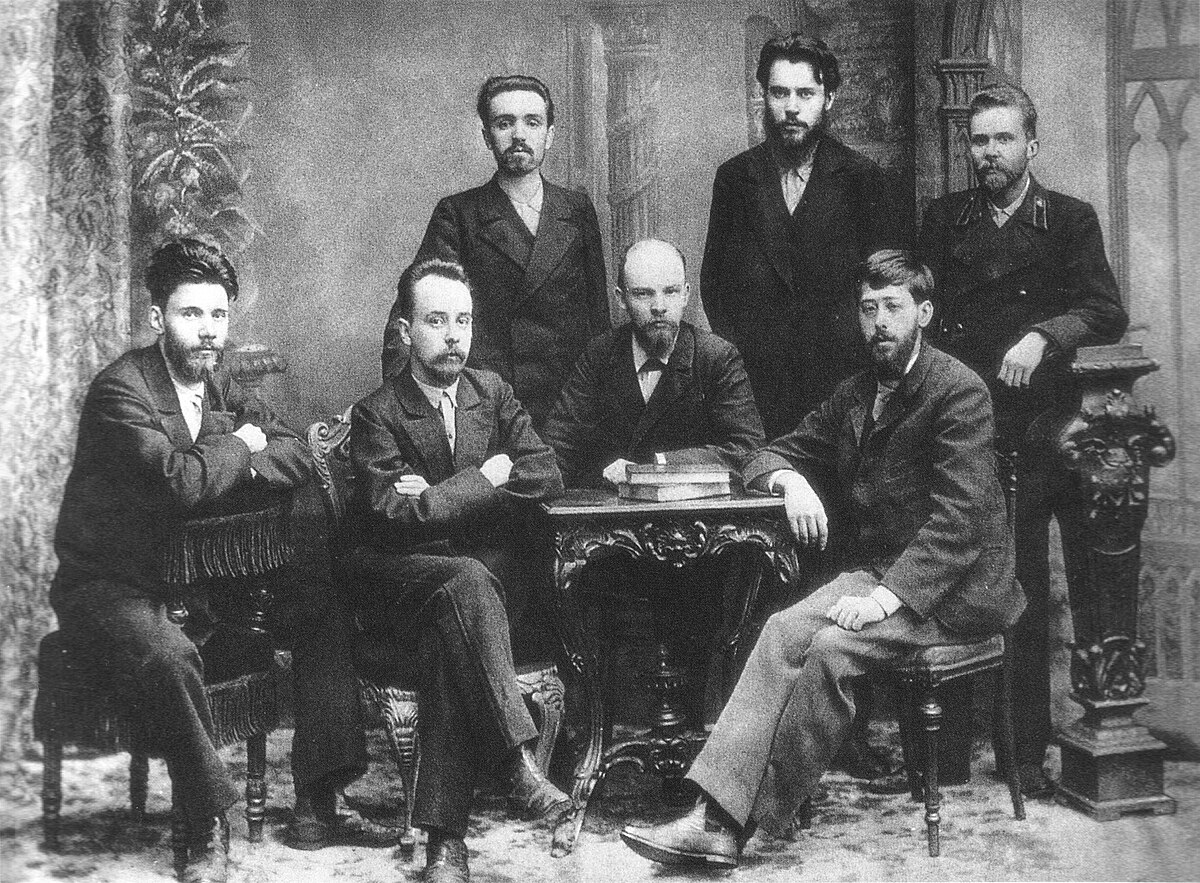
Vladimir Ilyich Ulyanov
Siberia, Novaya Ulitsa, ShusheIn late 1893, Vladimir Ilyich Ulyanov, better known as Vladimir Lenin, moved to Saint Petersburg. There, he worked as a barrister's assistant and rose to a senior position in a Marxist revolutionary cell that called itself the Social-Democrats after the Marxist Social Democratic Party of Germany. Publicly championing Marxism within the socialist movement, he encouraged the founding of revolutionary cells in Russia's industrial centres. By late 1894, he was leading a Marxist workers' circle, and meticulously covered his tracks, knowing that police spies tried to infiltrate the movement.
Lenin hoped to cement connections between his Social-Democrats and Emancipation of Labour, a group of Russian Marxist émigrés based in Switzerland; he visited the country to meet group members Plekhanov and Pavel Axelrod. He proceeded to Paris to meet Marx's son-in-law Paul Lafargue and to research the Paris Commune of 1871, which he considered an early prototype for a proletarian government. Returning to Russia with a stash of illegal revolutionary publications, he travelled to various cities distributing literature to striking workers. While involved in producing a news sheet, Rabochee delo (Workers' Cause), he was among 40 activists arrested in St. Petersburg and charged with sedition.
In February 1897, Lenin was sentenced without trial to three years' exile in eastern Siberia. Deemed only a minor threat to the government, he was exiled to a peasant's hut in Shushenskoye, Minusinsky District, where he was kept under police surveillance; he was nevertheless able to correspond with other revolutionaries, many of whom visited him, and permitted to go on trips to swim in the Yenisei River and to hunt duck and snipe. After his exile, Lenin settled in Pskov in early 1900. There, he began raising funds for a newspaper, Iskra (Spark), a new organ of the Russian Marxist party, now calling itself the Russian Social Democratic Labour Party (RSDLP). In July 1900, Lenin left Russia for Western Europe; in Switzerland he met other Russian Marxists, and at a Corsier conference they agreed to launch the paper from Munich, where Lenin relocated in September. Containing contributions from prominent European Marxists, Iskra was smuggled into Russia, becoming the country's most successful underground publication for 50 years.
